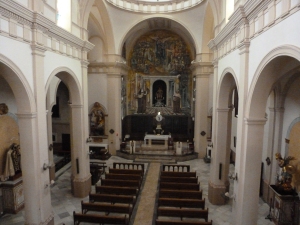THE FIRE OF LOVE: REFLECTIONS ON THE SPIRITUALITY OF JOHN OF THE CROSS

A NEW BOOK ON THE CENTRAL TEACHINGS OF JOHN OF THE CROSS
Dear friends and enthusiastic followers of St. John of the Cross:
I would like to introduce to you my latest book on John of the Cross. In this current set of reflections I attempt to focus on the central aspect of all John’s works. He is known for his teachings on the dark night, his insights into faith, his views of the stages of the spiritual life, his profound analysis of the place of the three theological virtues in human growth, his enthusiastic and positive understanding of creation as a reflection of God, and so on. John of the Cross is also known for his challenging approach to spiritual growth and some commentators even call him “doctor del las nadas” (the doctor of the nothings) because of his presumed rigorous rejection of all that is not God. But the Church has proclaimed him the “Mystical Doctor,” and appreciates him as the great teacher of human and divine love and contemplation.
John of the Cross is one of the greatest teachers the world has ever known on the importance of love as the central value and meaning of life, and this is the focus of these current reflections. He teaches us about “the great God of love,” telling us “He whom my soul loves is within me,” and “nothing is obtained from God except by love.” He challenges us to make the journey to God, “along the spiritual road that leads to the perfect union with God through love.” Wisely he tells us that we have to travel “with no other light or guide than the one that burns in our hearts,” for it is “love alone that makes us soar to God,” for this needs to be “a journey of strong love.” There comes a point in this journey when we can say “nor have I any other work now that my every act is love,” because we know that “when evening comes we will be examined on love.” So, since “the ultimate reason for everything is love,” let us be careful and “where there is no love put love, and we will draw out love.” At the end of our journey, perhaps we can say with John “stricken by love, I lost myself and was found.”
I hope you will find this special book helpful in your spiritual journey. Use it daily for your meditation on the central values of John’s teachings and the heart of your own journey to God and to a deeper appreciation of the meaning of life.
This book is available at amazon.com















